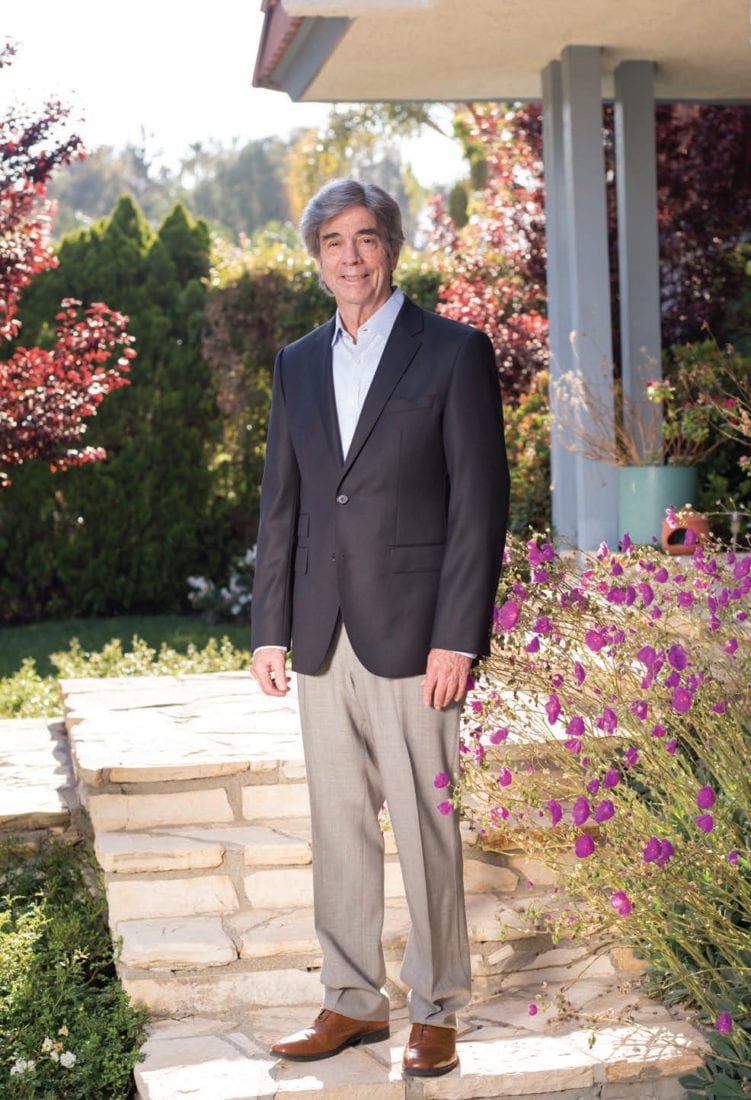Alumnus’ gift allows Haas undergrads to reap educational opportunities

adding $1 million to
the Carl D. Jacobs Scholarship
to support even more Haas undergrads from California. Photo: Dan Steinberg/AP Images for Berkeley Haas.
At 74, Carl Jacobs, BS 65, is pondering his legacy. An HR management and strategic planning consultant for 35 years, Jacobs has worked with organizations nationwide, providing analyses that have led to effective strategy and development of performance-based incentive plans. He’s also authored and contributed to numerous scholarly books and papers and lectured on workplace issues.
Jacobs, of Woodland Hills, Calif., strongly supports public education, having given over $300,000 to UC Berkeley and having created the Carl D. Jacobs Scholarship, which supports Haas undergraduates from California. He’s adding $1 million to the fund, mostly through an estate gift, extending his philanthropic reach. He’s also committing himself to science education (“so people will learn to take care of our planet”) and music education (Jacobs started singing with the Berkeley Glee Club and earned a master’s in Jewish cantorial music two years ago), to enhance quality of life. He recently spoke with BerkeleyHaas about his work and philanthropy.
Why do you give to Haas?
Jacobs: I began giving to the school when we started the Los Angeles Haas Alumni Chapter in 1986. As state support of UC declined, I became interested in supporting the school. In my era, the big costs were room, board, and books. Tuition was minimal. I started the scholarship in the ’90s to enable California students to attend Berkeley or to graduate with less debt.
Where did you learn the value of philanthropy?
Jacobs: Giving back was inculcated in me before I was 10. My dad was always philanthropic, an aerospace engineer heavily involved with the California Science Center as a docent and volunteer exhibit builder. At his death, gifts went to six University scholarship funds including mine. I, in turn, made a gift to the Science Center in loving memory of him.
How did Haas prepare you for your career?
Jacobs: I look to the Defining Leadership Principles, especially Question the Status Quo and Confidence Without Attitude. In my first job, the CEO had a pet project he thought would motivate employees. Though new in the personnel department, I politely cited motivation theory I learned at Haas and indicated the project would not motivate people. It went up the chain of command, and they appreciated that I was knowledgeable and passionate enough to say it. Since then, I’ve been able to tell prospective clients or employers that if they want someone to tell them what they want to hear—not need to hear—they have the wrong guy.
What advice would you give to Haas graduates?
Jacobs: An old commercial said, ‘grab for all the gusto.’ I’ve always done that. Grab everything you can at Haas and after you finish. Be open-minded to opportunities, maintain your integrity at all times, and give back to the school that helped you get there. Also, you have one mouth and two ears. You should listen more than you talk. Finally, make somebody’s day—catch them doing something right. I learned that early in my career, and it led to my success.